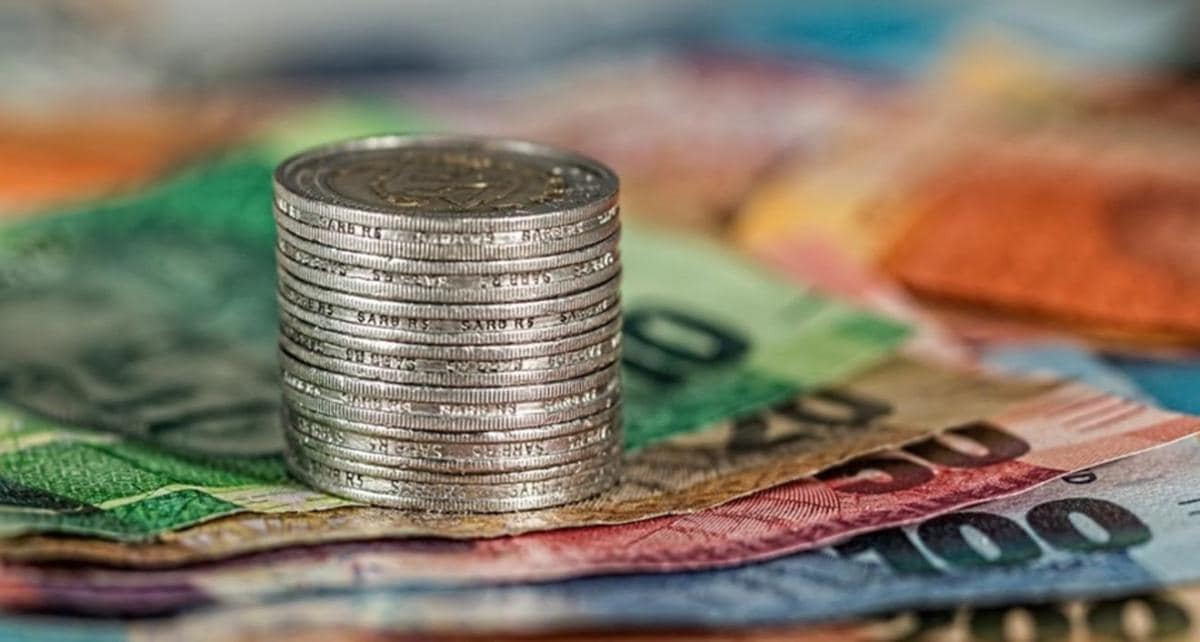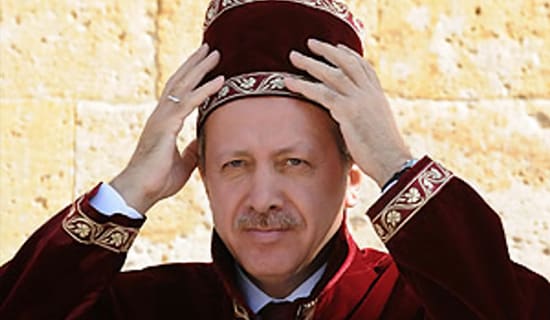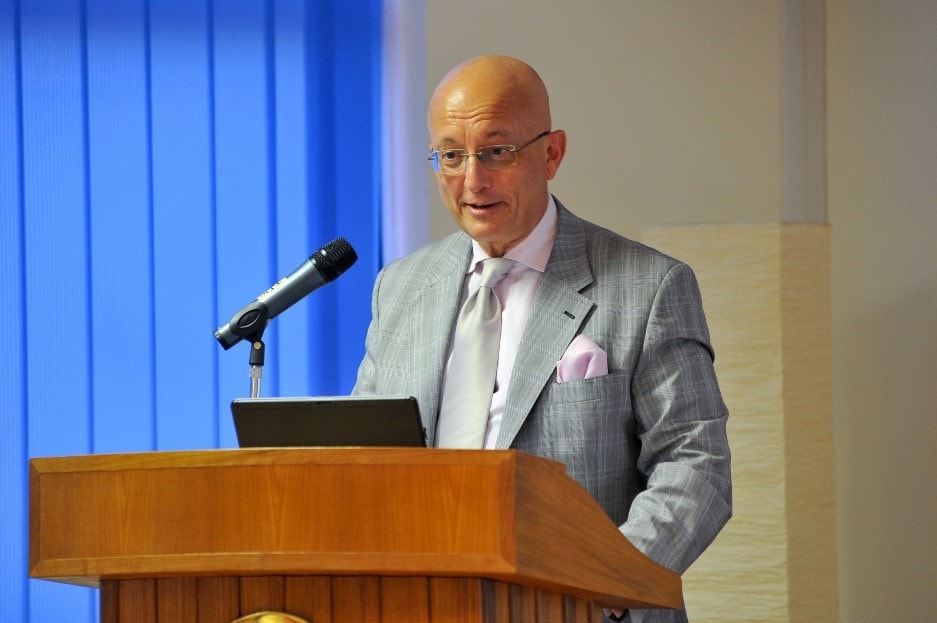For around two and a half years since the start of the Russian aggression against Ukraine, many analysts have predicted an inevitable economic crisis that sooner or later would hit Russia. However, by early 2024, these forecasts had proved wrong. The war with the neighboring country elevated the government military spending; the wave of emigration resulted in labor shortages and therefore pushed wages higher; the capital controls locked money inside the country and thus increased domestic demand. In addition to all this, Russian exports have not collapsed even despite the European and American energy embargo and the oil price cap,[1] remaining more or less at their 2021 levels after an extraordinary surge in 2022. In 2023, the Russian economy grew by 3.6 percent,[2] the ruble-to-dollar exchange rate was just 15 percent lower than before the attack on Ukraine (which is, I would say, much less than the accumulated inflation for both 2022 and 2023),[3] and the real wages shot up by 8.5 percent while the inflation was accelerating, but still "remained under control" at 7.42 percent.[4]
The first half of 2024 had seemingly contributed to this optimistic trend, but these days one should assess the Russian economy in a bit less of a rosy way as several trends can be seen that may contribute to hardships in the second half of the year. These disturbing trends seem to have both external and internal origins.

(Source: X)
A Loophole In Russia's Economic 'Defense': The Payment System
On the external "front" the Western policymakers, after around two years of bold experiments, found a gaping loophole in Russia's economic "defense": its payment system. The sanctions introduced by the U.S. authorities between December 2023 and June 2024 threatened the third parties' banks by banning them from operations with dollars and euros if they process dealings with Russian entities.[5] The criteria for such restrictions were extremely loose, so even in "friendly" countries, as the Kremlin labels the non-Western world, the banks started to turn down payment requests first by the companies that held their accounts with the sanctioned Russian banks,[6] then by the exporters and importers of "suspicious" goods, and by the summer with randomly chosen companies.
These days, Russian businessmen report that less than 20 percent of all transactions with China – 90 percent of which are nominated in rubles and yuan – are processed smoothly,[7] while all others face significant problems. The sanctions against the Moscow Exchange aggravated the problem as now only the yuan bought outside Russia may be used for trading with China and banking fees may these days exceed 10 percent.[8]
Until May, Russian foreign trade with "friendly" countries remained flat compared to the first months of the year,[9] but the numbers may come out surprisingly lower. The growing difficulties with imports may become painful – not so much because the Russian military-industrial complex still depends on semiconductors, but because around 20 percent of all foodstuffs sold on the Russian market, as well as up to 35 percent of all staples, are still imported. Nevertheless, Western policymakers should realize that Russian entrepreneurs these days are intensively working on a cryptocurrency payments system and developing sophisticated networks that allow mutual offsets for the goods and services bought and sold abroad, so I would insist that domestic issues look more important and challenging than all the sanctions that have been recently imposed.[10]
Problems On The Domestic Front
The problems on the domestic "front" are looming large and they seem to be much more crucial than the tightening of international financial regulations.
Russia's economic resilience toward Western sanctions and aggravating terms of trade has been so significant in recent years mainly because of the government's loose financial policies. The Kremlin increased military expenditures more than threefold, from 3.5 trillion rubles that were planned for 2022 to 10.8 trillion expected to be spent in 2024;[11] it authorized a dramatic hike in soldiers' pay and death gratuities, which are now estimated at around three trillion rubles per year and may grow further;[12] it allocated enormous funds to the regional infrastructure development; continued to subsidize the mortgage programs stimulating the banks to issue loans on more than five trillion rubles in the last three years;[13] and it refrained from raising the taxes – both on enterprises and on citizens. All these factors, and some others, like the increased consumer spending for domestically produced goods and services, benefited the Russian economy up to the present day, but it seems they may be exhausted.
First, the Kremlin already realized that it cannot meet its ends without a hike in taxes. The needed decisions were made several months ago, with the new rules coming into effect in 2025. The most important changes target wealthy citizens, with the rise of the highest tax rate from 15 to 22 percent and significant increases in taxes for those earning more than 50,000,000 rubles, or about $570,000 per year, and the business with profit tax elevated from 20 to 25 percent.[14] Official estimates suggest that up to two trillion rubles will be additionally collected annually under this regulation that means that the aggregate private demand may dive by at least three trillion rubles annually which is, after all, quite a significant figure for the Russian economy.
Second, since July 1, 2024, the government has terminated one of its most successful pro-growth initiatives, the subsidized mortgage lending that has allowed people to buy their first house or apartment with a 30-percent down payment and a loan of initially six, and later eight percent per annum, which was lower than the official inflation estimates.[15] The program was extremely popular – the banks have issued six trillion rubles in loans since it was introduced in 2020, with 3.1 trillion rubles dispersed since January 1, 2023.[16] Such a huge stimulus benefited the construction industry, which recorded a 35 percent growth in delivered new apartments between 2021 and 2023,[17] while the housing prices increased between 60 and 100 percent in terms of rubles.[18] Most experts insist that the termination of the program may not only cause a crisis in construction industry, which employs up to 6.4 million people and consumes eight times more ferrous metals than the entire Russian heavy industry,[19] but also provoke a meltdown in the housing market where high prices have been supported by never-ending demand caused by easy access to mortgage funds. Would the direst forecasts become true, the Russian economy may well lose between 0.6 and 0.8 percent in 2025.
Third, in recent years Russians have continuously switched from foreign goods and – what is most important – services, to domestic ones. Hospitality and restaurant services became the largest beneficiaries of Russia's disengagement with the Western nations, growing by 15-40 percent per year. Domestic air travel already exceeded the pre-war levels despite the growing risk connected to the use of stolen Western planes, which cannot be duly serviced,[20] and the tremendous rise of the air tariffs.[21] The most popular summer tourist destinations like Sochi are these days three times more expensive than middle-class resorts in Spain or Italy, and there are dozens of new locations opened for mass tourism – from the Dagestan Caspian coast to Murmansk, and from Volga retreats to the Altai Mountains. But in recent months some clear signs have emerged indicating a diminishing demand since hotel prices are growing two and a half times faster than overall inflation.[22] The overheating of the service market may become another problem for 2024 and 2025.
Fourth, it looks like the cash payments to the military, which have been considered a revolutionary tool that was able to channel billions of rubles into Russia's poorest regions,[23] are levelling out. To my mind, the appointment of the new defense minister in May signaled the call for introducing more economic rationale into the ongoing war since the new servicemen are becoming too costly. Just recently the Moscow city government announced it would give a signing bonus of 1,900,000 rubles, or about $22,000 to every new contract soldier.[24] If the number of active military personnel, which had risen by more than 30 percent since mid-2022 stabilizes in the coming months, the economic effect of the high military salaries would affect the Russian economy much less than it did in 2023 when the pro-government analysts started to talk about "new wealthy Russians," meaning veterans and those in active military service.[25] However, to keep the current pace of economic growth, military benefits should grow further, and the government has no intention of significantly increasing soldiers' monthly pay, which has been steady at around 200,000 rubles, since 2022.
Fifth, in 2022-2023 the core inflation in Russia remained relatively low,[26] being confronted with a reasonable and predictable currency exchange rate as well as with concerns about low domestic demand. After two years of war, it had started to accelerate with the Central Bank lacking effective levers for lowering it. The most recent data suggest that annual inflation increased from 8.6 percent in June to 9.0 percent in July, and the seasonally adjusted core inflation rate rose to an average of 9.2 percent on an annualized basis in Q2 2024 after 6.8 percent in Q1.[27] This has forced the Central Bank to raise its key rate for the first time in seven months,[28] and I expect it to exceed the multiyear record of 20 percent by the end of the year. The Central Bank policies cause the growth of interest rates,[29] which will impose additional pressure on both the domestic consumer demand and investment activity, which may mean the continuous decline in economic growth figures further in 2024 and 2025.
The very special feature of today's economic moment in Russia is that, on the one hand, there are many signs of an "economic overheating" – e.g., last week the Central Bank's chairperson called it "the first cyclical overheating of the Russian economy since the 2008-2009 crisis," suggesting the interest rates would have to be kept high for rather a long period of time[30] – and, on the other hand, both the statistical data and government officials signal trends that might reflect the coming economic slowdown. A recent report from Rosstat, which is Russia's Federal State Statistics Service, shows that the rise in industrial production in June decreased to 1.9 percent, or almost three times lower than the average figures from January through May and became the lowest since early 2023.[31] Almost all industries oriented on the consumer market reported zero or negative growth, together with the extractive industries, which contracted by 3.1 percent.[32] The bureaucrats started to talk about creating Russian chaebols for mobilizing resources and channeling them more effectively into the most crucial industries that might restart the economic growth and have a high multiplication effect.[33]
Conclusion
Of course, the Russian economy is not facing an imminent crisis – I have reiterated many times that it is still able to fund Putin's war efforts for years – but one should examine the evolving trends as thoroughly as possible. In 2023-2024, the growth of the Russian economy stemmed from a unique combination of government subsidies, the reorientation of consumer demand on domestically produced goods and services, and optimistic consumer sentiments that allow the public to spend. This combination may in fact be much less durable and stable than is often believed, especially if the Russian financial authorities will go on with rising interest rates for fighting inflation.
On the third year of war in Ukraine, Russia's economy faces a hard choice concerning increasing government spending, rising wages, high growth rates, and growing inflation accompanied with elevated risks of financial destabilization. For many months, it seemed the Kremlin opted for growth – but now the government has lost its allure for funding this growth as it had done both in 2022 and 2023. The Central Bank seems to be prevailing over the Kremlin in its calls for modesty – and the consumers cannot increase their spending as they did in recent months. The Russian economy approaches an important turning point, and therefore the Russian leadership will become more and more interested in debating a possible ceasefire in Ukraine that may lead to some decrease in military spending, ease of consumer worries, and even lifting of some of the Western sanctions. The Kremlin, I would say, tries to act now as though such talks are close, and the main task of the Russian economy is to remain in good shape at the time of their start.
*Dr. Vladislav Inozemtsev is the MEMRI Russian Media Studies Project Special Advisor, and Founder and Director of the Moscow-based Center for Post-Industrial Studies.
[1] Tradingeconomics.com/russia/exports
[2] Minfin.gov.ru/ru/press-center/?id_4=38851-rosstat_otsenil_rost_vvp_v_2023_godu_v_36_protsenta
[3] Audit-it.ru/currency/sr_vz.php
[4] Rbc.ru/economics/28/02/2024/65df594c9a79473672e5b5d0, February 28, 2024; Interfax.ru/business/940012, January 12, 2014.
[5] Cov.com/en/news-and-insights/insights/2024/01/new-us-sanctions-targeting-russia#layout=card&numberOfResults=12, January 2, 2024; Reuters.com/markets/europe/moscow-exchange-stop-trading-dollars-after-latest-us-sanctions-2024-06-12/, June 12, 2024.
[6] Vedomosti.ru/finance/news/2024/04/11/1031285-kostin-soobschil-o-roste, April 11, 2024.
[7] Business-gazeta.ru/article/627069, March 22, 2024; Tass.ru/ekonomika/20812849, May 16, 2024; Business-gazeta.ru/article/627069, March 22, 2024.
[8] Vedomosti.ru/finance/articles/2024/07/26/1052157-kitaiskie-banki-otkazivayutsya-prinimat-gryaznie-yuani-iz-rossii, July 26, 2024; Bloomberg.com/news/articles/2024-07-17/us-sanctions-make-it-harder-for-russian-firms-to-get-paid-by-china, July 17, 2024.
[9] Rbc.ru/economics/13/07/2024/6690f2879a7947194862e9da, July 13, 2024.
[10] Wsj.com/finance/currencies/crypto-fuelsrussian-shadow-trade-for-weapons-parts-1bfdc1a1, April 1, 2024.
[11] Forbes.ru/finansy/497441-minfin-zaplaniroval-uvelicenie-rashodov-na-oboronu-v-2024-godu-pocti-na-70, September 28, 2024.
[12] Svoboda.org/a/za-god-uchastnikam-voyny-v-ukraine-vyplatili-do-3-trln-rubley/33040411.html, July 17, 2024.
[13] Ria.ru/20240701/ipoteka-1956525466.html, July 1, 2024.
[14] Forbes.ru/finansy/516538-gosduma-prinala-zakon-o-progressivnoj-skale-ndfl, July 10, 2024; Meduza.io/cards/vlasti-povyshayut-nalogi-dlya-naseleniya-i-biznesa-skolko-zaplatyat-rossiyane-za-sotsialnuyu-spravedlivost-i-pochemu-ona-vse-ravno-ne-nastupit, May 29, 2024.
[15] Eastrussia.ru/news/v-rossii-zakryli-programmu-lgotnoy-ipoteki-pod-8/, July 1, 2024.
[16] T.me/realty_rbc/1541, July 1, 2024.
[17] Minstroyrf.gov.ru/press/podvedeny-itogi-zhilishchnogo-stroitelstva-v-2023-godu/, January 26, 2024.
[18] Amp.meduza.io/amp/feature/2024/07/23/zhilie-podorozhalo-na-80-kvartiry-stali-menshe-a-srok-kredita-vyros-do-26-let-chto-proishodit, July 23, 2024.
[19] Realty.ria.ru/20200402/1569494369.html, April 2, 2024; Vtorion.ru/blog/article/spros-na-metallurgicheskuyu-produkcziyu-v-rossii-za-pervoe-polugodie-2023-g-vyros/, April 11, 2023.
[20] Moscowtimes.ru/2024/02/04/chislo-aviaproisshestvii-vrossii-viroslo-bolee-chem-vdvoe-a120510, February 4, 2024.
[21] Rbc.ru/business/25/03/2024/65fdab8c9a79477fecf1afc9, March 25, 2024.
[22] Spb.vedomosti.ru/economics/articles/2024/05/05/1035581-prozhivanie-otelyah-peterburga, May 5, 2024.
[23] Novayagazeta.ru/articles/2023/07/25/smertonomika, July 25, 2023.
[24] Meduza.io/news/2024/07/23/vlasti-moskvy-nachnut-platit-pochti-po-dva-milliona-rubley-za-kontrakt-s-minoborony, July 23, 2024.
[25] Rbc.ru/economics/09/06/2023/64818ac49a7947e918133707, June 9, 2023.
[26] уровень-инфляции.рф/%D1%82%D0%B0%D0%B1%D0%BB%D0%B8%D1%86%D1%8B-%D0%B8%D0%BD%D1%84%D0%BB%D1%8F%D1%86%D0%B8%D0%B8
[27] Rbc.ru/finances/26/07/2024/66a26a809a79470f0742c3d0, July 26, 2024.
[28] Cbr.ru/press/keypr/
[29] Vedomosti.ru/finance/news/2024/07/23/1051553-rossiiskie-banki-nachali-povishat, July 23, 2024.
[30] Rbc.ru/economics/26/07/2024/66a39ba79a79472f995a4b4d, July 26, 2024.
[31] Interfax.ru/business/972295, July 24, 2024.
[32] Interfax.ru/business/972295, July 24, 2024.
[33] Rbc.ru/economics/20/07/2024/66976c969a79471f07ecbabb, July 20, 2024.




